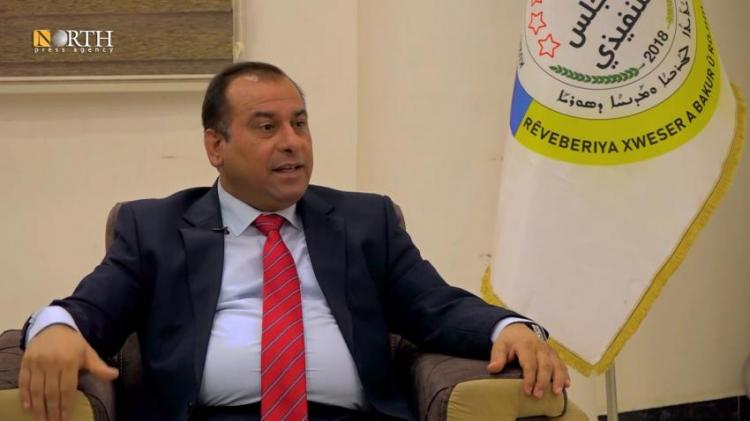Arab community in northeastern Syria expresses support for intra-Kurdish dialogue
Agid Mishmish
RAQQA, Syria (North Press) – An Arab senior official in the Autonomous Administration in northeast Syria expressed on Tuesday the Arab tribe-majority community support to the Kurdish internal talks aiming at resolving political disputes.
“The Arab community and I fully support the Kurdish talks as they suffered from political disputes for a long time,” Abed Hamed al-Mehbash, the co-head of the executive council of the Autonomous Administration, told North Press.
“[We trust] the various political parties operating in Syria, for they are rich in experience,” he said.
In a survey conducted by North Press last month in the Arab-majority city of Raqqa, most expressed solidarity for the Kurdish political talks.
“If the Kurdish parties reach an agreement, this will have a positive impact on the whole region of northeast Syria and will bring more stability,” said an Arab resident of the city.
The Arab community in northeast Syria took part in the Autonomous Administration since 2014 after the breakout of the Syrian civil war, and their participation increased significantly after the Kurdish-led Syrian Democratic Forces (SDF) liberated more Arab-majority areas such as Raqqa and Deir ez-Zor in 2017.
Since 2012, the Kurdish community in the region were split into two disputed groups, one formed the Autonomous Administration and its military force, the People Protection Units (YPG), and had prominent leading political parties, like Democratic Union Party (PYD).
The other group, backed by the Kurdistan Regional Government of Iraq (KRG), formed Syria’s Kurdish National Council (ENKS), which was part of the Turkish-backed Syrian opposition.
Two weeks ago, SDF commander-in-chief Mazloum Abdi announced progress in unity talks between the leading rival Kurdish parties in Syria, describing a recent round of exchanges as successful.
The PYD and ENKS, the two major factions among Syrian Kurdish parties, renewed negotiations in early November to resolve long-standing disputes after Turkey’s cross-border offensive in northern Syria in October.
Since 2012, the KRG’s then-President Masoud Barzani mediated between PYD and ENKS. The agreements were meant to reach a common formula to administrate northeast Syria, but neither was applied due to many political rifts.
The first agreement was made on June 11, 2012, in Erbil and was called the Hawler I Agreement, the second one was made on Dec. 24, 2013, called the Hawler II Agreement, and the third was made in Duhok on Oct. 22, 2014, called the Duhok Agreement.

